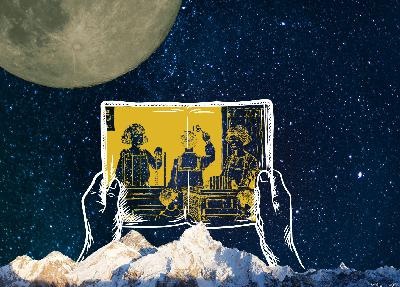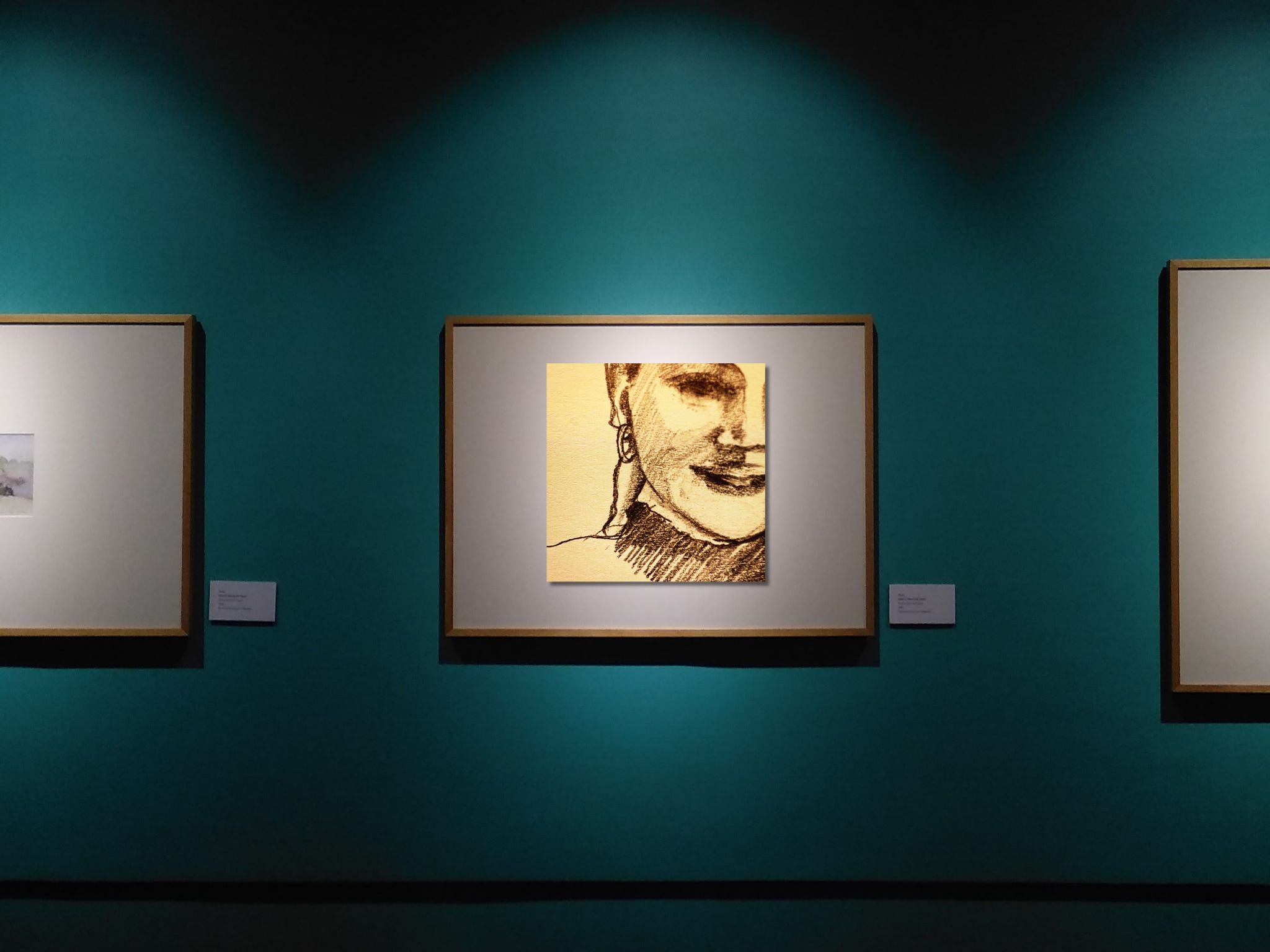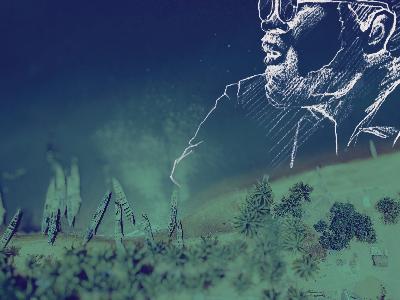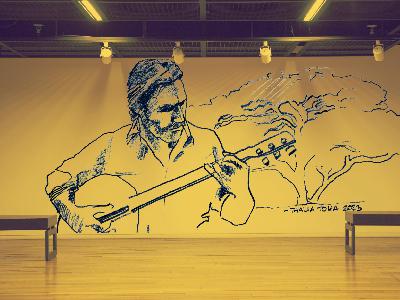7. Differences in living in the US, Africa, and UK
Description
One heavy but necessary question today:
Ever been an outsider everywhere you go?
If you’ve had multiple geographical origins, you might know what this means.
But I wonder if true places of belonging, is not necessarily geographical.
“It is not down on any map; true places never are.” - Herman Melville, The Whale.
It might just be about something else.
Having been thrown into something entirely new—a new environment, a new city, a new job, a new interest, a new work situation, a new friend group, a new country even—makes us ask these questions.
If you’re ever curious about what exactly is the real difference between the US and UK (and even Africa)—especially when it comes to living, working, studying, and making meaning—this is the episode for you.
Everyone, your family, and your friends, are always watching. And when you realize that you or your family might be spending $50,000 per year on your future, there is a responsibility to know everything there is. Especially about the real differences between living, studying, or even just making meaning in the US and UK.
It’s even better if you can go inside the brain of someone who had done it 10, 20, and even 30-years ago. Someone who had the chance to go through a self-examination on what that experience is like.
* All the things they did right.
* Everything that went wrong.
* How you can avoid making the same mistakes.
* And how to prevent imposing those same mistakes to your loved ones.
Especially if you’ve bet on a good education. Like an Ivy League school. Or six-figure jobs. Investment banking. Medicine. Law degree. Software engineering. Or even sports.
Yes, those things sound good. And they make us feel good. But are they right for you? Are they right for your friends? Are they right for your kids?
And if you’ve already done all this and you’re looking back at your experience as a youth, would you agree with what people told you?
Living, working, studying, and making meaning in the US is not *quite* the same as in the UK, Africa, or anywhere else in the world. And the only real differences that matter, can only be told by people who have gone through the exact same thing.
Eugene Baah has had 30 years to reflect on this. He went from living in poverty-ridden government housing in the UK, to learning from his mother from Ghana, to playing for the British Nationals and junior Olympics, to entering the Ivy Leagues, to working with Philadelphia 76ers, Slack, Microsoft, and Afriex, to then becoming a proud father of 5 (yes, FIVE!),
Listen to this episode if you’re curious to find out about what it’s really like to be living, working studying, and making meaning in the US versus UK. And about the only real differences that matter after a 30-year self-examination.
—
In case you’re out and about without WiFi later, download this episode now.
Music: Silhouettes by Tobias Voigt (License code: 8IDBGGC5WXLDYLAU)
Previously:
The firm non-secret to being enough: An engine-room look at surviving what we create
In this episode:
From wanting brand-name corn flake cereals in the UK to thanking mother in the US [A journey]
The 1-mile Perspective Shift: Squatting in ditch, fetching water from the river, and being jeered at for being spoiled
Long distance relationships: What non-residents really think of UK and US
Mother Ship and Ownership: Buying a house in the UK with humble amounts, and then moving to the US
An eye-opener: “It wasn't until I got to America when I realized what I didn't have.”
Is it easier to be motivated when you don’t already have something?
On whether money really brings happiness: the disconnected pursuit of happiness in what we do (not) have
Behind the Ivy league pearl gates: street-level reality vs. fiction and what everyone should know
Episode 7 TRANSCRIPT
THALIA
Well I wanted to start actually with Ghana.
Now this is a country that I've heard so much about.
I've never been there before and I know that you grew up in the UK but your family is from Ghana and I wonder. During the times when you were visiting as a child, or maybe recently you've been visiting Ghana, but what was your perception on kind of the major differences between sort of that Western culture and the culture as you understand it, the modern Ghana?
What were some key differences that you've seen?
EUGENE
Yeah, actually, as you're bringing it up, I remember a specific trip when I was seven years old. I was obviously raised in the UK and we lived in government housing, right?
And I remember specifically complaining to my mom that we couldn't get name brand cornflakes, right?
We would go to the grocery store and we would have like these, the no-thrills or
the Tesco brand cornflakes, right?
And I was like, Mom, I want the name brand.
I want the Kellogg's.
I want the, you know, the characters on there.
And I remember making a big stink of it.
And then my mom got the regular, you know, you know, non name brand cornflakes.
The 1-mile Perspective Shift: Squatting in ditch, fetching water from the river, and being jeered at for being spoiled
EUGENE
And I remember going back to Ghana with her and she took me to her village in Ghana.
And I remember the first day, I asked to use the bathroom. I was pointed outside and I went outside. And there was a hole in the ground and a plank of wood. I had to squat to use the bathroom. In this ditch. Then afterwards they were like, “You need to go get your water because you're going to need to bathe and we're going to use some of it to cook. And so I went with my cousins that I just met right away.”
And we had to walk maybe a mile to the river to get the water. And then carry the water backs on our heads right and so by the time I got back. I was drenched with water and everybody was laughing at me. It was like European you know you're so spoiled.
I tell that story because now I'm a father of five.
I grew up thinking I was poor up until that moment.
I realized how fortunate I was and from that moment on, it just gave me a different perspective on just my own situation and knowing that it can always be worse.
There are people that have it far worse than me.
It also made me amazed at what my mom was able to do in terms of one generation, how she went from that to giving me what I have right now.
So just imagine what I should be able to do. So it's almost like a pressure for me to make the same type of leap that my mom has made. Which is huge. Coming from a place where she grew up with no plumbing. To the point where she lives comfortably. Is able to travel the world. And business class and so forth.
It's a huge leap.
And when I think about what she's done, I think about, OK, what can I do to put my kids in a similar position?
So my mom's motivation was primarily just for her kids. She wanted to create a better life for her children.
And she felt like education was the way to do that. And in the UK you had free education and they had these programs where you can take these nursing courses. And then you could come to the UK. And be a midwife. That's how she got into health care and nursing. They were recruiting people from other places in the commonwealth. My mom participated in that program
and she went and took her kids.
And my father stayed behind. He was like, “No, I'm going to stay in Africa. This is where I'm from.”
And so that was her motivation to find a place where she could educate her children.
THALIA
Wow.
So she moved in.
Was she an adolescent at that point?
Or she was kind of a late adolescent?
EUGENE
She was older, she already had my two older brothers and my sister at that point and she moved and then she went back to see my father and obviously became pregnant and then came back to the UK again and had me and so that was the experience and that's how I came to be born in the UK.
THALIA
Wow.
So your dad stayed behind, which I think, I don't think people understand just quite how that is like. Especially if you're born here in the US and understanding the separation that families, that they had to go through, especially in your parents' case, they were long distance for, and I don't know how often she went back right to Ghana while she was in the UK.
Was it like once a year, once every five years, do you remember any of that or?
EUGENE
Yeah, it was at least once a year because my dad at the time was an airplane engineer for Ghana Airways.
So we used to get free plane tickets.
And so we'll go back every year and my oldest sibling stayed with my dad.
I guess my dad thought that my mom was going to run away.
I was like, “the security policy”.
And so my older brother stayed with my dad until he was 18.
And then just came running to my mom was like, Hey, I'm coming to stay with you.
THALIA
So did you know your older brother a lot at all?
Or did it feel like he was kind of like a distant cousin almost since you're so far away from each other for most of the year?
Long distance relationships: What non-residents really think of UK and US
EUGENE
Yeah, I didn't know him that well.
He was just this person I was aware of w
















![1. Why we want to do everything at once [An Internal Logic] 1. Why we want to do everything at once [An Internal Logic]](https://substackcdn.com/feed/podcast/1909227/post/138192032/ed23403f2ddb56ee3e75c8377474e6fe.jpg)



